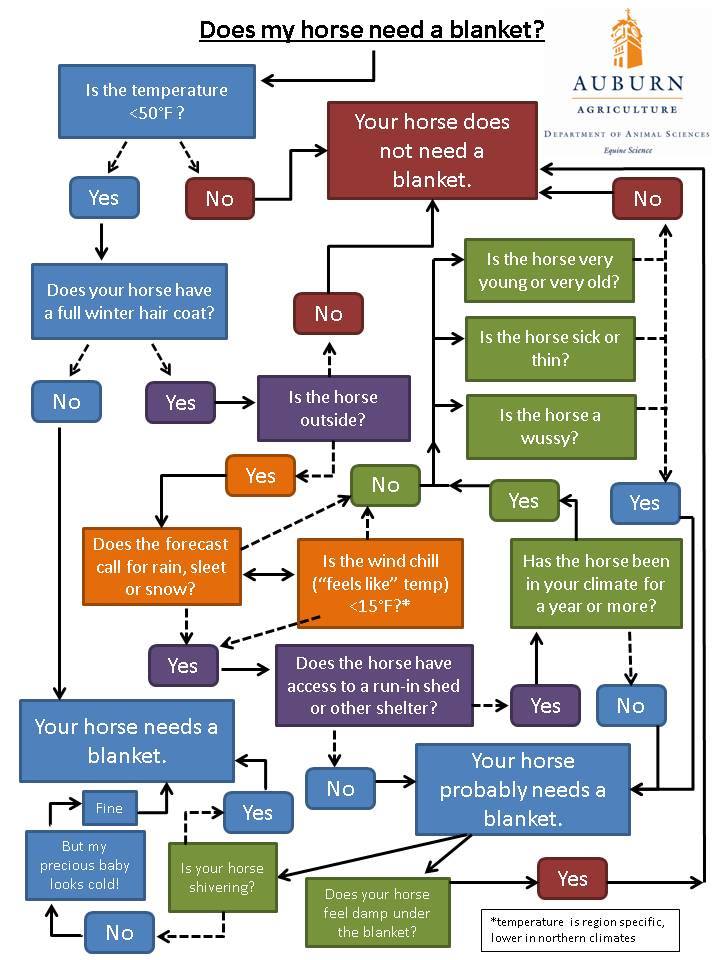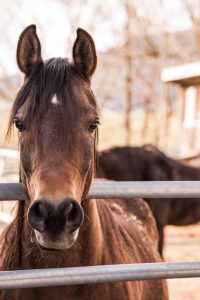It’s a commonly debated question, should horses be blanketed in winter? Below is a look at both sides of this “heated” debate.
Blankets, Yay or Nay?
Winter presents a whole new set of challenges for horse owners depending on where they live. From plunging temperatures, snow, rain, sleet and mud, should you blanket your horse during the winter season? While some equines may need extra protection against the harsh elements, other horses may overheat wearing a blanket.
So what’s a person to do?
Things to Consider First
While there’s no definitive or automatic answer about whether you should blanket your horse during the colder months, there are some general guidelines that can help. Each horse is different, but the tips below can help you decide what to do for each individual horse.
Is your horse:
- Shivering either in the barn or outside? When your horse is shivering, it’s the body’s attempt to produce more heat. To determine if your
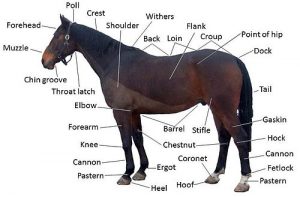 horse is cold, place your hand up inside the elbow or stifle to check for warmth.
horse is cold, place your hand up inside the elbow or stifle to check for warmth. - Very young or very old? Typically, healthy adult horses can effectively regulate their body temperatures. But for senior horses and foals, they need extra help in staying warm, even if it’s not wet or windy outside.
- Sick, injured or very thin? Blanketing these horses can help them conserve their energy and stay warm when temperatures drop below 50 degrees F. Without an adequate fat layer beneath the skin, thin horses (with a body condition score of 3 or less) require extra help with warmth.
- From a warmer climate? Typically, it will take a horse a few seasons to adjust to his new environment and begin to grow a full winter coat.
- A show horse? Since show horses are clipped to make them look sleek and shiny, they will need help in staying warm with blankets to compensate for the lack of a natural winter coat. A turnout blanket will protect against the winter cold and also against sunburn in the summer.
- Not able to access shelter in the wind or rain? They may need a winter blanket to help keep them warm in harsh conditions, but it can be removed when the weather improves.
- Sweating? The first signs of sweat will be under the blanket and may spread along their neck and behind their ears. If your horse is sweating, he’s overheating and it’s time to remove the blanket or use a lighter one.
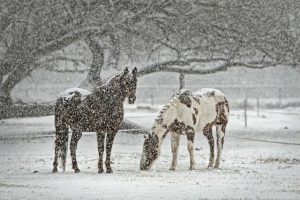 Sleet, Rain, Snow or Wind, Oh MY!
Sleet, Rain, Snow or Wind, Oh MY!
While your horse’s winter coat can usually protect them from freezing temperatures (down to 0 degrees F with no wind or rain), it’s a completely different story when the weather becomes windy or wet. Under these conditions, the horse’s long hair loses its natural insulating properties and your horse will quickly become cold because their body heat is no longer trapped against their body.
“Horses with very short hair may be the only horses that need to be
blanketed during winter weather. In fact, a blanket may not be the best thing for horses kept outside in winter, especially when it’s wet.
“The blanket actually pushes the hair down, compressing the air spaces and the hair isn’t able to insulate the way it’s intended.”
(Mark Russell, Assistant Professor, Equine Extension, University of Arkansas, Division of Agriculture)
A Few More Tips
- Make sure the blanket is well-fitted without slipping that can cause your horse to spook and potentially injure himself.
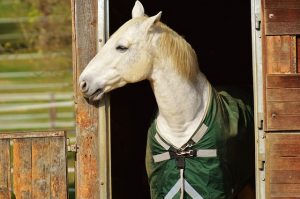
- If you regularly blanket your horse in the winter, his natural winter hair growth will decrease.
- Provide plenty of forage (fiber-rich feds like quality hay and/or beet pulp) to help your horse produce his own heat naturally.
- Horse blankets come in a range of varying weights depending on what fits your horse’s needs the best. Make sure all blankets are breathable and waterproof. (Learn more here: 6 Factors to Consider when Choosing a Horse Blanket.)
And finally, below is an informative and even humorous look (is the horse a wussy?) at whether your horse needs a blanket from the Department of Animal Sciences at Auburn University.
When in Doubt
If you’re not sure whether you should be blanketing your horse in the wintertime, reach out to your local vet and ask for advice based on their experience, your local climate and your horse’s overall health and condition. Your horse is depending on you to provide what he needs no matter the season!
Equine Grooming Is Critical for Blanketed Horses!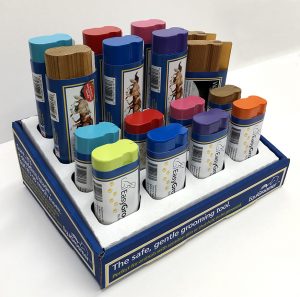
When horses are blanketed, it can be hard to detect grooming or skin issues including rub marks or sores. That’s why it’s so important to maintain a regular grooming routine even in the winter.
The 3-Piece Grooming Set makes grooming your horse easier, faster and more comfortable!
For individual or bulk orders, call 860-573-0604 or click here to send us an email.
Additional Reading:
Does Your Horse Really Need a Blanket?
Monday Myth: Horses Need Blankets in Winter
What to Consider When Blanketing Your Horse
Should You Blanket Your Horse this Winter?
Image Credits:
Courtesy of Wikipedia
Bhakti Iyata from Pixabay
Alexas_Fotos from Pixabay
Pexels from Pixabay
Product Image: Courtesy of EquiGroomer

